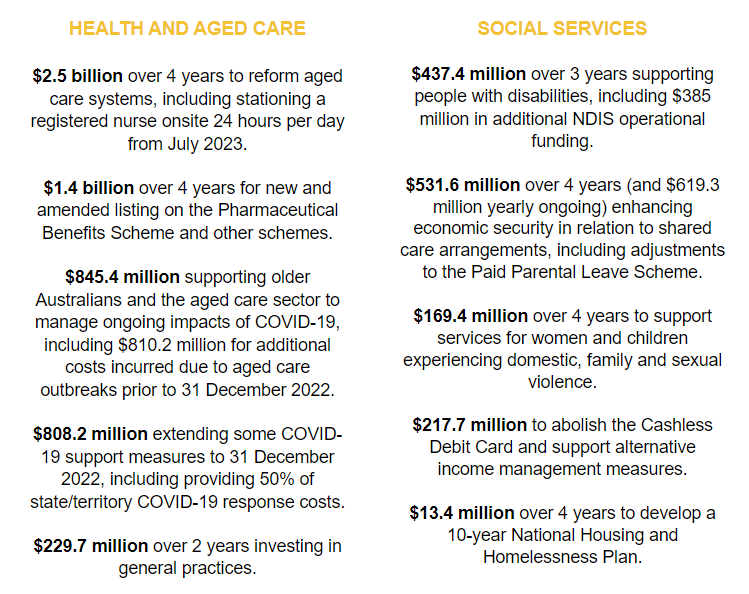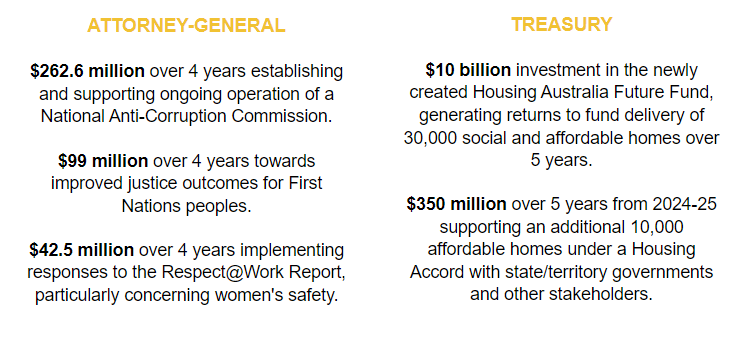25 October | 2022-23 October Federal Budget Summary
Treasurer Jim Chalmers tonight handed down the Albanese Government’s first Budget that not only spelt out its policy priorities but also warned of the impact of a likely global economic downturn.
As various indicators suggest a significant slowdown in global growth – including rising inflation and overseas monetary policy tightening, rolling floods on the eastern seaboard, severe instability in the Chinese property market and the ongoing invasion of Ukraine – the Government has carefully prefaced tonight’s announcements with descriptions of a ‘responsible budget’ that is suited to prevailing conditions.
Unemployment stands at a near-record low of 3.5% but is expected to rise to at least 4.5% in 2023-24. Meanwhile, the Treasury now forecasts an inflationary peak around 7.75% by the end of this year, which should begin to wane in mid-2023 and return to between 2-3% in 2024-25. A Budget deficit of $36.9 billion, however, is approximately half of what was predicted in March's pre-election economic and fiscal outlook. Economic growth in 2023-24 is forecast to fall to 1.5%.
The 2022-23 October Budget has made commitments in:
Targeted cost-of-living relief
Reducing costs of essential medicines, including reductions of maximum co-payments under the Pharmaceutical Benefits Scheme
Expansion of paid parental leave
Improving housing supply and affordability, including for social and affordable housing
Building wage growth for low-income earners
Investment in clean energy and climate change mitigation
Extra NDIS and aged care funding
Engagement with Pacific nations and developing strategic partnerships
Key measures include:
$4.7 billion over 4 years to deliver cheaper childcare
Establishing a $1.9 billion Powering the Regions Fund
$20 billion in low-cost finance towards electricity grid upgrades under the Rewiring the Nation fund
Providing 480,000 fee-free TAFE places and 20,000 new university places for students from less advantaged backgrounds
Increasing the number of weeks available to families under the Paid Parental Leave scheme to 26 weeks by 2026
A Housing Accord providing 1,000,000 new homes over 5 years from 2024, and $10 billion to establish the Housing Australia Future Fund
Tonight's Budget commitments constitute Labor's attempt to balance global economic pressures while supporting Australians through at least two years of inflation outside the RBA's 2-3% target range, as well as cementing various policy priorities over at least its next 2.5 years of government.
For full details on the 2022-23 October Federal Budget please click here.











